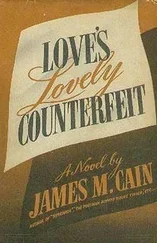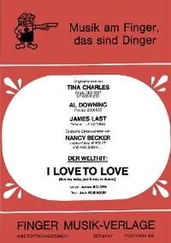Arthur Beeche was six feet three inches tall and was powerfully built. He had a large head with a flat brow; his black hair had always been rather thin and, combed straight back, enough of it now remained only to cover his skull. The most striking thing about Arthur’s appearance may have been his mouth, which was incongruously sensitive-looking for the thick superstructure of his jaw and cheekbones. Today he wore a gray suit with a thin, faint red check, cut in the English style.
Arthur was thinking about something that he had not been able to get out of his mind since he first put the suit on that morning: his tailor had died. This event saddened and preoccupied Arthur. He was, naturally, concerned about finding someone who would make his clothes as skillfully. But he wasn’t thinking about that. The news was taking an emotional toll on Arthur, for his tailor had been a particular friend.
Sam Harrison (someone at Ellis Island had given his father, a Russian Jew, the same name as Arthur’s aide, who was a Harrison of Virginia) had become a Communist in the 1930s and had remained one. The greatest tragedy of the twentieth century, to his mind, had been the Normandy invasion. By the time the Allies had finally opened the second front, Sam always insisted, even Stalin had come to think that the Soviets could defeat Hitler alone, which would have secured all of Western Europe for the dictatorship of the proletariat. The very rich men of affairs among Sam’s clients took pleasure in it when he ranted against capitalism: the irony and humor of being abused by your incredibly expensive Communist tailor was delectable. Meanwhile, the idle men of fashion who patronized Sam all more or less agreed with him.
While Arthur’s fellow plutocrats treated Sam with amused, condescending patience, Arthur talked with him frankly and seriously. He didn’t relish the incongruity of paying someone to make his suits who, theoretically, would just as soon have seen him guillotined; his mind didn’t work that way. He disagreed with Sam and said so forthrightly, taking Sam’s opinions at face value, and Sam treated Arthur’s with the same respect, and as a result, as they argued over the years, they became better and better friends. What especially bound them together, though, were their discussions on a topic that was dearer to Sam even than politics: his wife, Miriam. He had married when he was twenty and his bride was seventeen, and he thought then, as he thought now, that Miriam was the most beautiful woman in the world (and he was not deluded in this). He had three sons and two daughters and many grandchildren and even a couple of great-grandchildren: he had loved them all and they had all made him proud (well, one of his daughters had married that pisher, but they got rid of him). But most of all, there was Miriam, a tall woman with long auburn hair and a sweet voice and even sweeter disposition. Sam loved her.
Now, Arthur had also loved his wife. They had fallen in love when he was twenty and she was seventeen, but, unlike the Harrisons, they were not married until several years later (and for that occasion, Sam had made Arthur a new morning coat for free). Without question, that had been the happiest day of Arthur’s life. As he said his vows, his voice cracked and he wept. He and Maria (pronounced with a long “i”) had been married for sixteen years, and he loved her throughout all that time and he loved her now. But she had died of cancer at age forty (at her most beautiful, Arthur and others believed). As he had been purely happy on his wedding day, so he was in pure despair on the day that Maria died. If the sun had burnt out and the seas dried up, Arthur might have been mildly troubled. Maria’s death made him distraught.
The person who best understood what had happened to Arthur was Sam Harrison. “It’s a tough break, kid,” Sam had said. Arthur had trembled.
“You know, Sam,” he had said hoarsely, “I have to travel a lot. The worst thing about it was always leaving her. But it was almost worth it because of how wonderful it was to see her again.” Arthur had been unable to speak for a moment. “Now I won’t see her again.” He had looked at Sam and saw the loose skin under his chin quiver and his eyes, each studded with a mole at the lower lid, begin to water. Sam held Arthur’s arm. “Yeetgadal v’yeetkadash sh’mey rabbah ,” he had whispered. “B’olmo d’vero keerutey. ” Arthur had not understood the words, nor had he fully grasped the significance of an atheistic Marxist’s uttering a prayer, but he appreciated the sentiment.
Sam and Arthur had always talked about Miriam and Maria, and they continued to long after Maria’s death. Years later, Arthur would ask Sam about Miriam, and Sam would grin and say, “Well, the other day …” But he would pause and look at Arthur, who would look back at him in the three-way mirror. Then Sam would say, “You’re still thinking about her.” And Arthur would say yes, and he would tell Sam some memory he had recently had about Maria—the soup in Madrid, her salamander brooch.
Maria was dead. They had had no children; Arthur himself had been an only child. His father was dead and now old Sam Harrison was dead. Arthur rose and looked out the window. The rising sun gave the rain clouds a dull glow. More cars had appeared. In a typical office building, even on a floor at this height, you could hear traffic, especially the slithering sound of tires on wet asphalt; typically, on a stormy day on a floor this high, the wind created spooky sonic reverberations and the building actually swayed. Arthur’s office was different. He heard no traffic or wuthering wind, and he felt no swaying. In his office, all was quiet, still. From his vantage he could see a dozen other buildings, and he thought about all the people who would soon be arriving for work. They constituted a lot of energy, activity money. A lot of life. Arthur did not wonder what it was all for. It seemed obvious to him what it was all for. His own life was busy and full. He had good friends; his mother was still alive and he was close to her. But he felt heavyhearted and alone.
A few hours later on that same June morning, a meeting was taking place on the fifty-ninth floor of the Beeche Building. It was in the small conference room, the one with no windows. One of the participants in the meeting, indeed its central figure, was a young man named Peter Russell. Peter was thirty-two years old; he had been working for Beeche and Company since his graduation from college, and he had advanced nicely. Despite the doubts he sometimes entertained about the value of his work, he had enjoyed it, he had enjoyed his success, and he had enjoyed his high pay.
On this morning, though, Peter was quite unhappy. In fact, he was at this moment the unhappiest he had ever been during his entire time at Beeche. The meeting, which he had gone into with enthusiasm, had become a savage, grotesque spectacle in which he was the victim. His tormentors had poured hot lead down his throat, cut off his private parts and stuck them in his mouth, and now, while he was still alive, they were tying each of his limbs to four different horses before sending the horses galloping off in four directions. Peter had fixed his face with an interested, wry expression while he listened to his colleagues, but he knew he was blushing bright red and that he was fooling no one. He felt sweat trickling down from his armpits.
It had all come about like this. A few weeks earlier, after a couple of his patrons had been shifted to different offices around the world, Peter had found himself working for a boss whom he didn’t know well. The things he’d heard about Gregg Thropp were not encouraging. Thropp was a short, stocky fellow, and he displayed all the Napoleonic traits so common among those of his physical type. He was driven, ambitious, self-important. When he walked, he moved his stubby legs so fast that even the long-legged had to work to keep up. Peter could see for himself that Thropp was insulting and rude to those below him. Others had warned him that Thropp was a devious, lying, backstabbing worm.
Читать дальше












